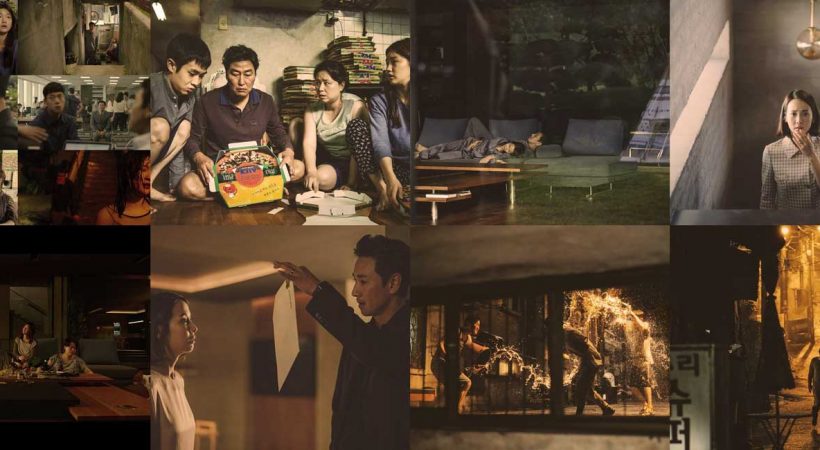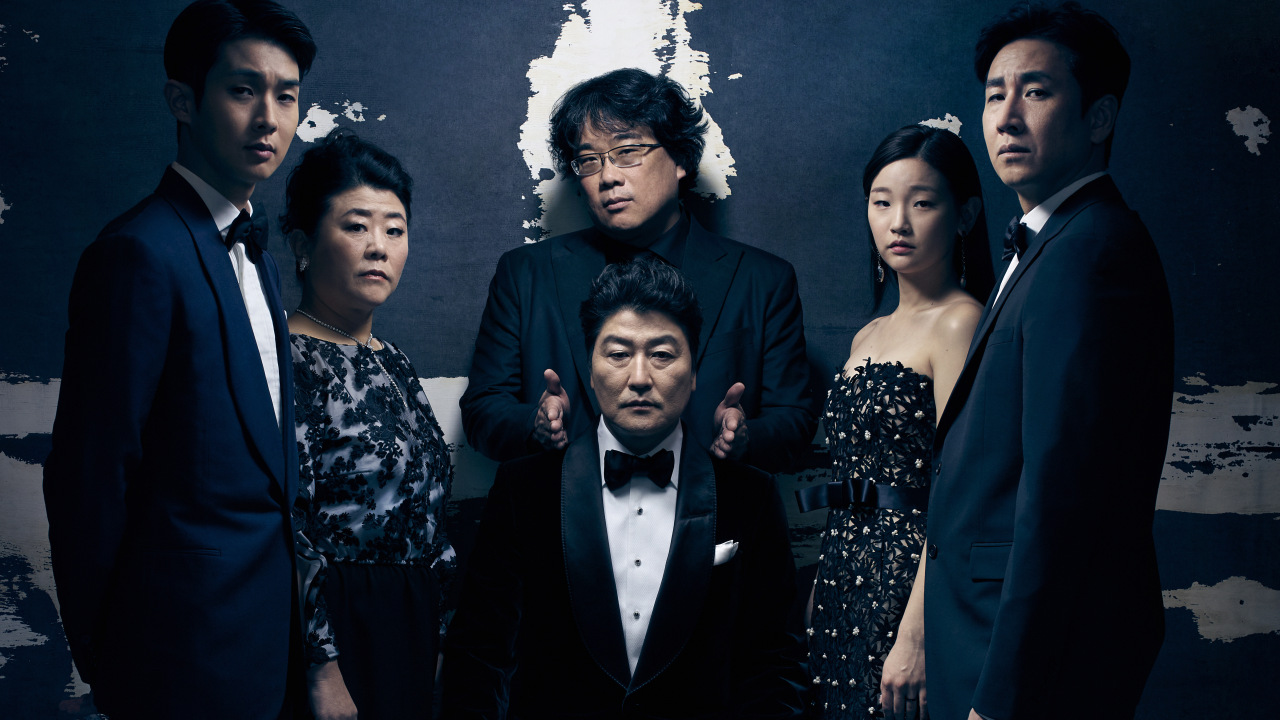Parasite: A true depiction of struggle for existence

FILIM APPRECIATION
The Oscar and Cannes-fame Bong Joon Ho’s Parasite has been talk of the town, ever since it has got applause at major international film festivals. There was an incident at the International Film Festival of Kerala in Thiruvananthapuram, where the movie fans who missed the show stirred up trouble demanding for an extra show to provide a chance for more people to watch the internationally acclaimed film. Acting up on their demand the organizers agreed for a repeat show. That much was the popularity of the film. The people were anxiously waiting for it to be screened after listening to those who had seen it earlier or reading the reviews in the international media.
It had already won the best movie award before coming to Kerala at the Indian International Film Festival in Goa.
I had watched the movie and I must say that it is Bong Joon Ho’s masterpiece, even though he had already made his mark by offering some imposing works of art through his previous films Okja, Snowpiercer, Mothe, Tokyo etc.
The film showcases the struggle by the haves and the have-nots for existence. The poor exploits the rich for a living, while the rich does the same to the poor, for living a more comfortable and luxurious life. The struggle goes on without winners or losers as both of them have to pay dearly for their deeds in the name of living their lives.
Director Bong Joon Ho depicts it beautifully. Struggle for existence is the same everywhere in the world, so the film lives beyond borders. Only the language, the names of the characters change. The story is so gripping that one is forced to be glued to the screen to not to miss a moment.
No doubt, the usp of the movie is certainly the thematic element of the storyline and the brilliant portrayal of it by the director.

Besides the technical and creative brilliances, the smooth and streaming script perfectly blends comedy, drama and suspense together.
Its jaw-dropping choreography and the enchanting background score give a memorable experience.
The movie starts in the basement apartment of the Kim family, situated in the dark alley of a dystopia. The film gets momentum when the family’s hardship gets changed when Kim’s son Ki-woo lands a job of tutoring the daughter of the wealthy Park family. From there on Ki-woo aggressively starts recruiting his family members as the Park family’s employees, faking them as professionals.
In fact, the Kim family lived on the Park family as “parasites”. Ki-jung, sister of Ki- woo (Park So-dam) becomes an art therapist to the young boy Da-song, Chung-sook, the mother (Jang Hye-jin) as Park’s housekeeper, and Ki-taek (Song Kang-ho). The father as their driver.
Meanwhile, making the situation worse, the original housekeeper Mun-kwang (Lee Jeong-eun) who was away from the house for some time, returns and confesses that her husband, Kun-sae, is deadhead in a secret safe place underneath the house for four years.

Following this revelation the movie turns in to two spheres, an upstairs storey wherein the Park family lives in affluence and the downstairs where Mug-Kwang’s husband in a very pathetic condition that even the Kims were shocked by seeing his poor state.
When Mun-kwang begs the Kim mother to allow her husband to continue hiding there and could continue the status quo, she rejects that offer.
Instead, the two families fight for their survival and temporarily the Kims win trapping Mun-kwang and her husband, Kun-sae, in the shelter.
During the birthday celebration of Park’s younger son, Kun-sae, the isolated and frustrated husband of Mun who was entrapped underneath the house, emerges and stabs Ki-jung and a pandemonium erupts where the Park child faints and his parents demand the father, Ki-taek, to drive them to the hospital, even as his own wife, daughter and son are bleeding to death. And in that moment of fury Ki-taek stabs the wealthy Park patriarch and runs away.
The core of the film was the climax which shows Ki-woo, with head injuries in the hospital, waking up, and escaping to a mountain. He looks at the Park house from there and notices his father, communicating to him with a flicker of light using scout signalling method.
Towards the end, one scene shows Ki-woo’s voice over in which he is fantasizing that he is going to college, making money and buying Park’s house only to save his father who is living in a secret shelter as a fugitive.
Ki-woo believes that one day his father would come out from the shelter and join the family again.
Bong Joon Ho’s Parasite ends in that same dark basement where the movie began, with the family nursing its wounds of failed attempts to escape from poverty. But they are hopeful.
The movie is in fact a symbolic portrayal of poverty and wealth through the two-storey building where one family lives in the dark alley of the society, whereas the other in affluence at the height of wealth.
Through these two families Parasite shows how these two are connected to each other and discusses the hardships through which a low income group family is living on even though it has to indulge in acts of fraud, revolt and violence to overcome their identity crisis and earn a better living.

Moreover, when it nears the end, it is seen that the characters as well as the audience come to a conclusion that the change they wish for is merely an aspiration and in the light of that they will continue to live with hope against hope. Praveen Vikkath















